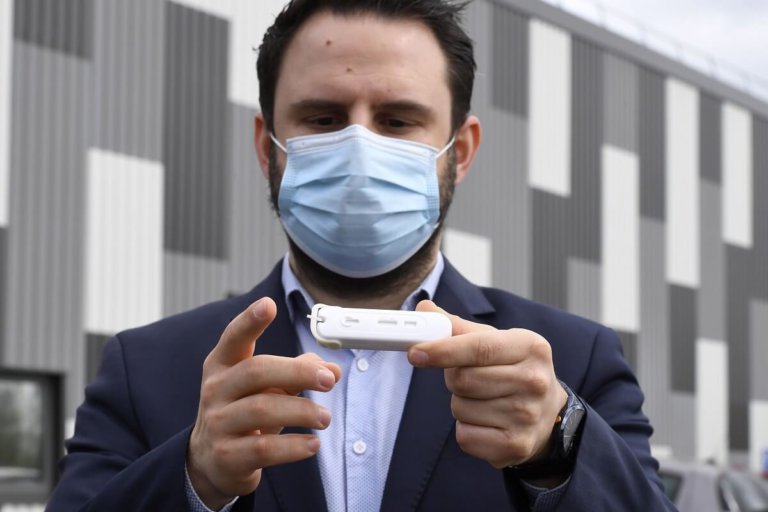
COVID-19 is bringing a new group of scientists to the forefront of public health: coronavirologists.
These experts are leading voices in their country’s battle against the pandemic. Not only do many of them have experience dealing with previous pandemics, but they are also carrying out pertinent new research and connecting with fellow experts around the world.

Source: Times Higher Education
Many of these coronavirologists engage the public via the media. They appear on the evening news. They host podcasts. They are strategically situated in health departments of universities around the world.
Here’s where the leading coronavirologists right now (based on citation impact) can be found. Could these countries be future hubs for public health and virology studies?
Germany

Christian Drosten is Germany’s leading coronavirologist. Source: Michael Kappeler Pool/AFP
Christian Drosten is director of the Institute of Virology at Charité – Universitätsmedizin Berlin. He is now recognised as one of the country’s foremost thought leaders on COVID-19, due in part to his podcast Das Coronavirus.
Drosten was one of the first researchers in the world to identify the virus behind the Severe Acute Respiratory Syndrome (SARS) outbreak. He also researched the Middle East Respiratory Syndrome (MERS) and now the Sars-CoV-2 virus responsible for COVID-19.
It’s no surprise that he is among the top 10 most cited coronavirologists, together with his colleague Victor Corman, who helped developed a COVID-19 diagnostic test.
Back in 2018, we put some facts and concepts on paper: What we know about
natural hosts and zoonotic sources of human Coronaviruses. Is there also a carnivora species that acts as an intermediate host for #SARS2 ?https://t.co/wlFx9Dzem6 pic.twitter.com/UWB7ZjjIcg— Victor M. Corman (@vmcorman) April 27, 2020
Netherlands
From the birthplace of inventors of the submarines and microscopes come more notable scientists in the field of coronavirology.
They can be found at Utrecht University and Erasmus University Rotterdam.
Berend-Jan Bosch at the former was involved in identifying an antibody that can prevent and treat Sars-CoV-2. This antibody neutralises SARS-CoV-2 infection in cultured cells, displaying “potential to alter the course of infection in the infected host, support virus clearance, or protect an uninfected individual that is exposed to the virus,” Bosch said.
At the Erasmus University Rotterdam, Victor Stalin Raj and Chantal Reusken are also highly cited.
UK
Professor of Infectious Diseases and International Health at University College London Sir Alimuddin Zumla has offered an interesting perspective to coronavirology.
Besides speaking out on how it distracts from other infectious diseases, he has also published a paper on toning down media hype and restoring hope.
US and Saudi Arabia

Ziad Memish has had an illustrious career in academia and politics. Source: Fabrice Coffrini/AFP
Ziad Memish was once the deputy minister of public health in Saudi Arabia. He is affiliated with the Hubert Department of Public Health Rollins School of Public Health, Emory University and Alfaisal University’s College of Medicine.
Memish has published hundreds of peer-reviewed papers and presented hundreds of abstracts internationally, earning him the highest national award in Saudi Arabia for achievements in the field of infectious diseases and infection control.
Hong Kong
The University of Hong Kong gained much of its pandemic experience with SARS. Now, its academics such as Jasper Chan are paving the way for Asian coronavirologists.
Speaking on early COVID-19 research carried out at the university, Chan is famously quoted for comparing COVID-19 to a ninja. “It can evade the detection of the body without triggering a very strong reaction (like inflammation) in the body, so it can replicate to a very high level,” he said.
Liked this? Then you’ll love…
Coronavirus: The experts on the front line and the education behind them
Why South Korea should now be on every public policy & public health student’s radar







